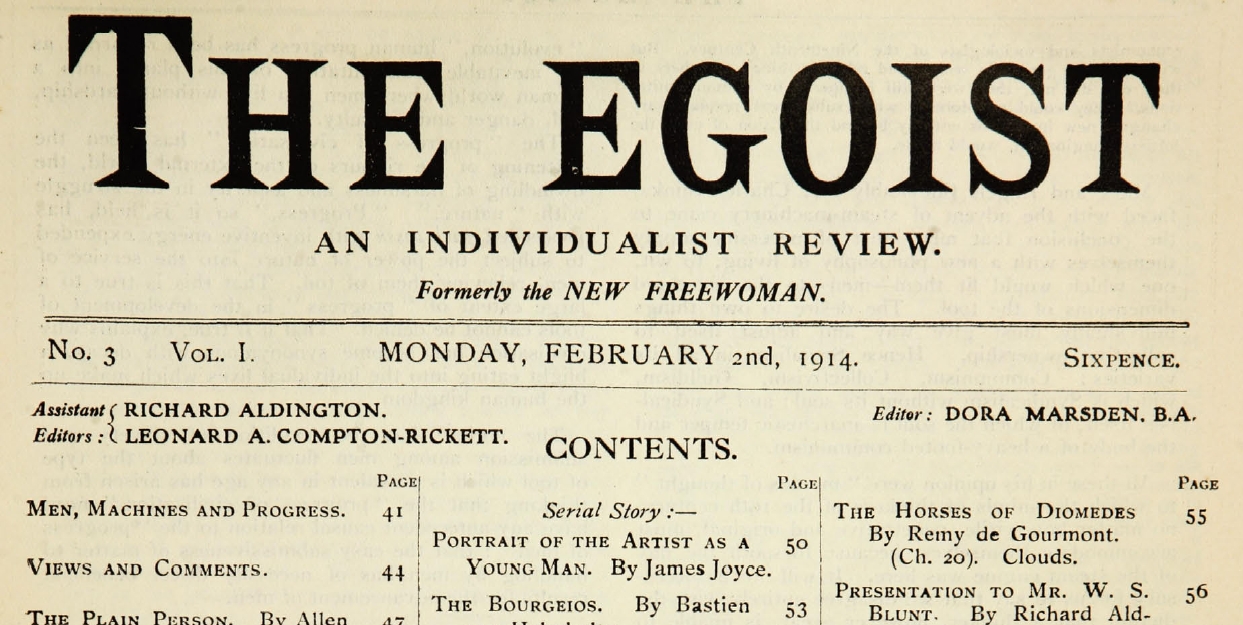Last fall, I studied a course taught by UBC Okanagan professor Anderson Araujo on the Imagists, a group of poets that ended up becoming the first wave of modernists that would define 20th century literature. The Imagists were poets, but also they wanted to change the way people wrote, read and thought about literature and art.
In 1913 one of the movement’s major figures, Ezra Pound, trying to put together an anthology of Imagist poetry, wrote to James Joyce, then a little-known Irish author. Joyce had struggled to put his collection of short stories, Dubliners, in print and had tried to write an autobiographical novel called Stephen Hero ten years earlier before abandoning it and reworking the concept.
Pound asked for permission to run a poem, “I Hear an Army,” and said he had the ability get him published in a couple of English and American journals, including the Egoist, which he said “practically can not pay at all,” but “may have a slight advertising value if you want to keep your name familiar.” Joyce sent him permission to run the poem, some scripts from Dubliners and the first chapter of his first novel, Portrait of the Artist as a Young Man.
The first part of Portrait of the Artist ran in the Egoist on today’s date, Joyce’s birthday, on February 2nd exactly 100 years ago. It ran every two weeks in 1914 and then monthly until September 1915. The journals are now in the public domain, and Brown University has posted them all online.
Why not celebrate together? Let’s start a little book club. Every day a new issue of the Egoist came out 100 years ago, I’ll post on this blog with some words by myself or someone else, if they want to, and then we can all discuss the chapter in the blog comments. It’s the anniversary of not just a book, but the dawn of an exciting time in literature, and not just for a day.
Here’s the first chapter, where we learn of the childhood of Stephen Dedalus. What do you think? Let’s begin.

